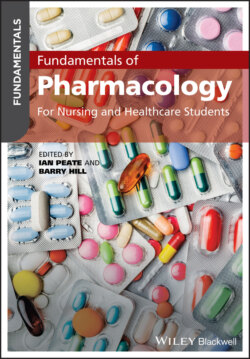Читать книгу Fundamentals of Pharmacology - Группа авторов - Страница 95
Episode of care
ОглавлениеMaya is an 85‐year‐old woman who lives alone. She is usually independent with all of her activities of living and, although she does not like to leave the house, she is usually in good physical and mental health. Her daughter visits her three times a week and has noticed some increased confusion over the past few days. Today she has visited and felt it necessary to call the GP as Maya is extremely confused and smells strongly of malodorous urine. The GP refers her to the acute admissions unit with a suspected Urinary Tract Infection (UTI). Further tests are undertaken in hospital, but the admissions team decide to prescribe intravenous (IV), broad‐spectrum antibiotics to treat the UTI as per the guidance from the National Institute for Health and Care Excellence (NICE NG109, 2018), which they hope will also alleviate the acute confusional state. However, Maya becomes very distressed when the nurse attempts to cannulate and Maya's daughter states that she does not consent to her mother receiving IV antibiotics. Maya has been assessed as an adult lacking capacity by health professionals. In accordance with the Mental Capacity Act (2005), she is cannulated and receives the IV antibiotics. Over the course of the next 24 hours her condition improves and her acute confusional state dissipates. The health professionals have acted in accordance with legal standards. They have also balanced their duty to respect Maya's autonomy with their duty of care in ensuring beneficence (doing good by giving the required treatment in Maya's best interests) and non‐maleficence (doing no harm by omitting care that was in her best interests).
